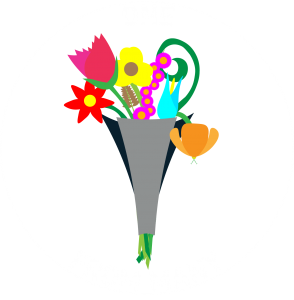Responses to Readers and Reminders Why There is a Center for Religion in Public Life at Phillips
 Over the past two weeks, there have been more comments on my blog, or prompted by my blog, than normal. Some of those comments represent real conversation, a relative rarity on social media. Thank you! At the seminary, we appreciate conversations and relevant arguments. I am using this blog post to mash together my responses to some of what was written in response to my blogs.
Over the past two weeks, there have been more comments on my blog, or prompted by my blog, than normal. Some of those comments represent real conversation, a relative rarity on social media. Thank you! At the seminary, we appreciate conversations and relevant arguments. I am using this blog post to mash together my responses to some of what was written in response to my blogs.
First, some general rules for our posts. As I said above, we at Phillips appreciate conversations and relevant arguments. You’ll note a breadth of responses made by readers, in terms of appreciation and critique. Page editors did not touch those posts. The page editors delete only posts that are completely off-topic, blatantly disrespectful of a person or group, or that are simply dismissive (“that’s bull;” “you’re stupid”). There were a few of those.
Second, I am not the seminary. I’ve been employed at Phillips a total of 22 years, and I’ve held numerous positions, including president and now the executive director of the Center for Religion in Public Life (a new initiative; see below). But my opinions are mine and not necessarily representative of the seminary. That said, both the seminary and I identify with and seek to strengthen progressive expressions of Protestant Christianity. There are plenty of schools and churches that identify with other expressions of Christianity, and relatively few progressively-oriented schools such as Phillips in the middle of the country.
Third, the Center’s purpose is to identify and encourage more expressions of religion in public life that seek to foster a more just, hospitable, and compassionate nation. Thus, the purpose of our work puts the work at the intersections of religion, culture, and politics—paying close attention to the cultural soil from which both religion and politics emerge.
Fourth, the separation of church and state is a different realm than the relationships between religion and politics. What makes these realms so interesting, conflicted, powerful, and alive (or deadly, as is sometimes the case) is that the lines between the realms are Swiss-cheesed and movable, which makes paying attention to the separation of church and state (no established religion; free exercise of religion, within limits) necessary and constant. Nations want/need founding myths and often desire the equivalent of sacred canopies (“this is God’s will”), and religions both provide and critique those myths and canopies. I strongly prefer that we religious folks view the political uses of religion with great suspicion—regardless of the administration.
Fifth, and as a consequence of what I wrote in four: religion is an important and legitimate warrant for public moral stances. A politician using religion as a warrant for a moral stance is to be expected. But deliberation about moral issues will not be contained within any one religious tradition, or within religious traditions at all. Simply saying “My God expects…” is not a sufficient basis for agreements and legislation. Also, while it is expected and legit that politicians would derive moral standards from their religions, it is not acceptable (from my religious point of view) to cloak oneself in religion or, more likely, when one party or one party’s agenda is said to be “God’s will.” No politician or party should claim to be a magisterium (official teaching authority of a religion).
Sixth, some readers objected to my inclusion of the Declaration of Independence and the Constitution in a list of places where racism shows up in America’s history. I included both documents because of Jefferson’s reference in the Declaration to “savages” who aligned with the King (in the latter part of the document, the part seldom read or referenced in public ceremonies) against the colonists and because of the Constitution’s original designation of enslaved persons as 3/5 of a person, thus de-valuing the personhood of enslaved persons even as the Southern states were awarded extra power to preserve slavery by their presence in the House and in the electoral college.
Seventh, a general statement about America’s narratives. In reader comments, I’ve seen the following narratives implicated: American exceptionalism, Manifest Destiny, America is no worse than other nations. Here is how I see the current debate about America’s story as it intersects with religion.
American exceptionalism has an imperial version and a Christian nation version: we are an empire meant to be the light for the world; we are a Christian nation as chosen as ancient Israel was chosen. These two narratives are separable, as some white nationalists are working the stories today (white nationalism without religion). But for much of our history, empire and Christian nationalism are twin engines powering the American train.
Those who claim “we’re not worse than anyone else” may be correct, but then we have to give up the “exceptional” claim, which is often a cover for claiming “innocence.” In the wider conversations about America’s origin and destiny, there are some persons who see the American narrative as racist through and through and irredeemable. And there are some of us who see racism throughout but also hold fast to the promise and hope of a nation that can live into liberty and justice for all, in a land of opportunity, where descendants of enslaved persons, immigrants, descendants of immigrants, and indigenous persons learn to live well with each other in a way that does provide hope in a world at war with its own diversity. How might America’s religions better contribute to that project? That is a question I’m trying to pursue through the Center’s work.
Eighth and finally, for today: some of the blog’s readers believe God looks more favorably upon the current administration than the previous one. I could make guesses as to why one might think that. However, claims of God’s favor always deserve close scrutiny and careful statement, so I’m trying not to assume I know what the readers mean.
From my point of view: Last week, as I was working on another project, I found numerous public documents written by religious leaders about state and federal budgets. Whether the budget is a church budget or a government budget, a budget is a moral document. What struck me about the public statements, some by Christians only, some including evangelical leaders, some multi-faith expressions, is they all start with judging the morality of a budget by how the poor and vulnerable are treated. The Buddha, the classical prophets of the Hebrew Bible, Mohammad, Jesus of Nazareth, and many other religious leaders taught of the first importance, in the eyes of God, of caring for the poor and vulnerable, the immigrant and the sick. That principle is fundamental to how I, too, judge the moral agenda of any administration. No administration is blameless when held against this principle, but some are due more judgment than others.
Image Credit: Blog by Nick Youngson CC BY-SA 3.0 ImageCreator



Comments are closed.